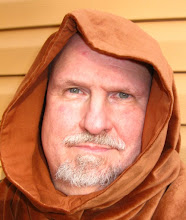Sophisticated face-recognition software has resulted in at least one criminal, a murderer, being arrested after moving to another state and acquiring a new driver's license.
Yes, it's Orwellian, but it's one of those cases where many people will be willing to surrender a little bit of freedom/privacy in the name of safety/lower crime.
What do you think, friends? Should government be searching the DMV photo databases, which comprises mostly law-abiding citizens, to search for criminals?
Subscribe to:
Post Comments (Atom)








6 comments:
When you get a CCW license and get fingerprinted, should the gov be able to search for a match with the fingerprint database?
@Borepatch: obviously a person who favors the one would favor the other, and a person who objects to one would object to the other.
I think that searching the database of photographs is acceptable.
I think that searching a database of fingerprints is acceptable.
What I don't want to see is this technology applied to public or private venues.
It may sound like a contradiction but I think the expectation of anonymity is the difference.
In public, I don't think that people should be filmed, scanned or photographed unless they've done something wrong.
On the other hand, I think that everyone knows and agrees that the purpose of the photograph and fingerprint on a license is for the government to be able to use.
The question in my mind is "Should the government be allowed to collect and maintain photographs and fingerprints in the first place?"
ATMO, the whole point of drivers licences and vehicle registration is to prevent the vehicle from bestowing anonymity. There's a difference between privacy and anonymity. I don't believe in a right to anonymity, it is not a thing that improves human behavior.
Facial recognition is nothing more than a digitized version of cops passing a photo around and asking one another if they know this guy. It's faster and covers a larger area, that's it. Not a difference in principle.
I think what they are doing is acceptable. They are searching for specific people who are wanted, not just general people to see if they broke the law.
Mrs. Widget,
The problem with photo recognition is that it usually gets stored. This creates a virtual surveillance system.
The system then can be used without a warrant or probable cause.
If the police want to follow me, they need to show sufficient reason, right? Either to their supervisors or a judge.
If they want to run a photo recognition search, what does the law require? Nothing.
Post a Comment